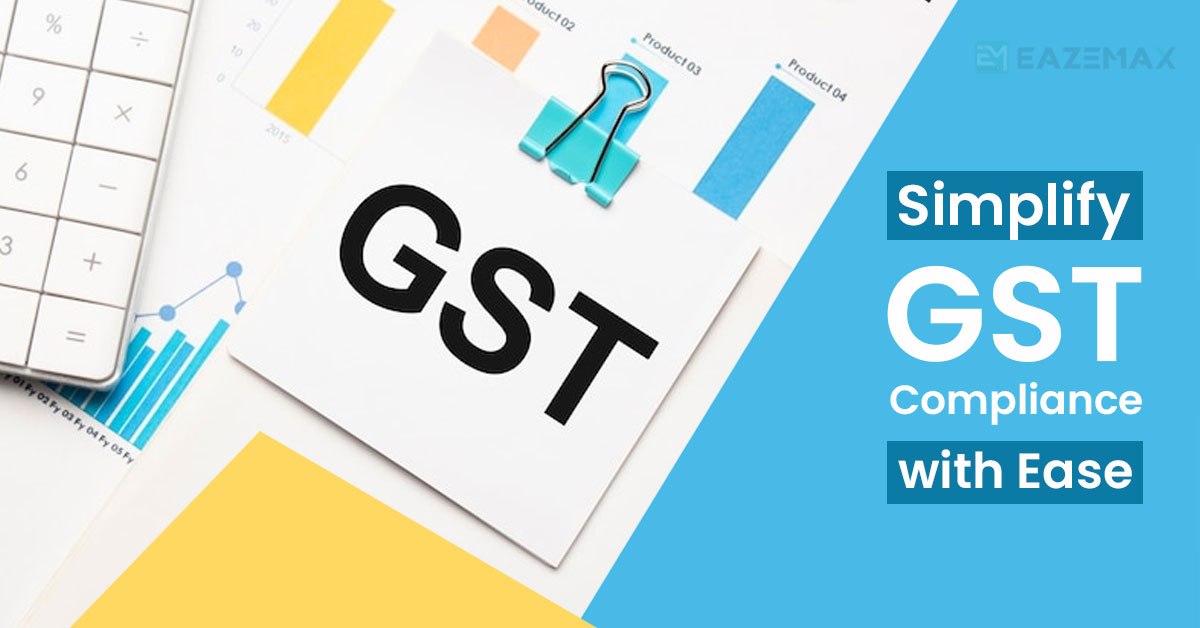
GST compliance involves adhering to the rules and guidelines set by the Goods and Services Tax (GST) law. This includes timely registration, correct invoicing, consistent filing of returns, and accurate record maintenance.
Proper GST compliance is crucial for businesses to operate legally and smoothly under the GST framework. It helps avoid penalties, boosts credibility, and facilitates efficient business operations.
A key part of GST compliance is timely registration for GST. Businesses exceeding the specified turnover threshold must register and obtain a GST Identification Number (GSTIN) for legal GST collection and remittance.
Accurate invoicing is another essential component. Businesses must issue GST-compliant invoices, detailing specifics like the GSTIN, HSN code, and GST amount. Correct invoicing allows accurate input tax credit claims and ensures transaction legitimacy for customers.
Regular GST return filing is mandatory, requiring submissions like GSTR-1 and GSTR-3B on a scheduled basis. Accurate return filing supports proper tax reporting and minimises legal risks.
Additionally, proper record-keeping is necessary for compliance, requiring businesses to maintain detailed records of transactions, sales, purchases, and inventory for audits and regulatory needs.
Compliance with GST Registration
GST registration compliance requires obtaining a GST Identification Number (GSTIN) for businesses that meet the turnover threshold criteria. This registration formally recognizes the business within the GST system and permits the collection and remittance of GST.
Adhering to these requirements is essential for legal business operations and avoiding penalties. Businesses must register through the GST portal, submitting the required information and documentation.
Post-registration, businesses should ensure that updates to business details, such as address or business nature, are reflected promptly on the GST portal. Staying compliant with turnover thresholds and registering as soon as turnover exceeds the limit helps maintain a strong legal standing and supports seamless business operations.
Why Stay GST Compliant and Aim for a High Rating?
Maintaining GST compliance and achieving a high compliance rating benefits businesses by bolstering credibility and reputation. It can lead to smoother transactions, reduced audit frequency, and less scrutiny from tax authorities. High compliance ratings also make businesses more appealing to investors and potential partners.
Enhances credibility and reputation:- A high compliance rating signals that a business meets its legal and financial obligations, fostering trust among stakeholders. This can lead to long-term business relationships and greater customer loyalty.
Enables smoother transactions:- Strong compliance records reduce operational disruptions. Suppliers and clients are more likely to engage with businesses that adhere to regulations.
Reduces audit frequency:- Businesses with strong compliance ratings are seen as lower risk, leading to fewer audits. This saves time and resources, allowing focus on growth.
Attracts investors and partners:- Investors and partners often prefer businesses with solid compliance records, indicating stability. High compliance ratings can enhance investment and partnership opportunities.
Benefits of a High Goods and Services Tax Compliance Rating
A GST compliance rating reflects a business’s adherence to GST rules. A high rating offers several advantages, including easier access to input tax credits, fewer audits, and a stronger business reputation. It can also open the door to better business prospects and increased stakeholder trust.
Easier Input Tax Credit Access:- Businesses with high ratings can claim input tax credits efficiently, enhancing cash flow and reducing tax liabilities.
Reduced Audit Frequency:- A high compliance rating decreases the chance of frequent audits, allowing better resource allocation towards business development.
Improved Reputation:- A strong compliance rating boosts a business’s credibility among customers, suppliers, and investors, encouraging customer loyalty and market presence.
More Business Opportunities:- Companies with excellent compliance ratings attract more partners and investors, driving business growth and expansion.
The Compliance of Tax Invoices
Tax invoice compliance under GST involves issuing invoices that meet GST standards, including specifics like GSTIN, HSN code, and GST charges. Proper invoicing is crucial for the smooth input of tax credit claims and compliance with tax regulations.
- Include GSTIN and HSN code on invoices
- Specify the GST amount accurately
- Ensure invoice accuracy and completeness
- Facilitate input tax credit claims
GST Filing Compliance
GST return compliance requires the regular and accurate filing of returns like GSTR-1, GSTR-3B, and annual returns. Timely return submission ensures proper tax reporting, avoiding penalties and legal issues, and is vital for maintaining a good compliance record under the GST law.
- File accurate GSTR-1, GSTR-3B, and annual returns
- Submit returns on time
- Avoid penalties and legal consequences
- Maintain a positive GST standing
GST Calculator
A GST calculator simplifies compliance by accurately calculating GST liabilities and input tax credits. It aids businesses in precise tax reporting, avoiding calculation errors, and streamlining financial planning.
- Accurate GST liability calculation
- Avoid calculation errors
- Ensure correct input tax credits
- Enhance financial planning
Conclusions
GST compliance is essential for businesses to operate legally and effectively under the GST system. Meeting compliance requirements for registration, invoicing, and return filing boosts credibility, avoids penalties, and ensures efficient operations.
Tools like GST calculators can further simplify the compliance process. For businesses aiming for expansion, securing financial support through business loans can be crucial. Comprehensive GST compliance is vital for sustained growth and success.





